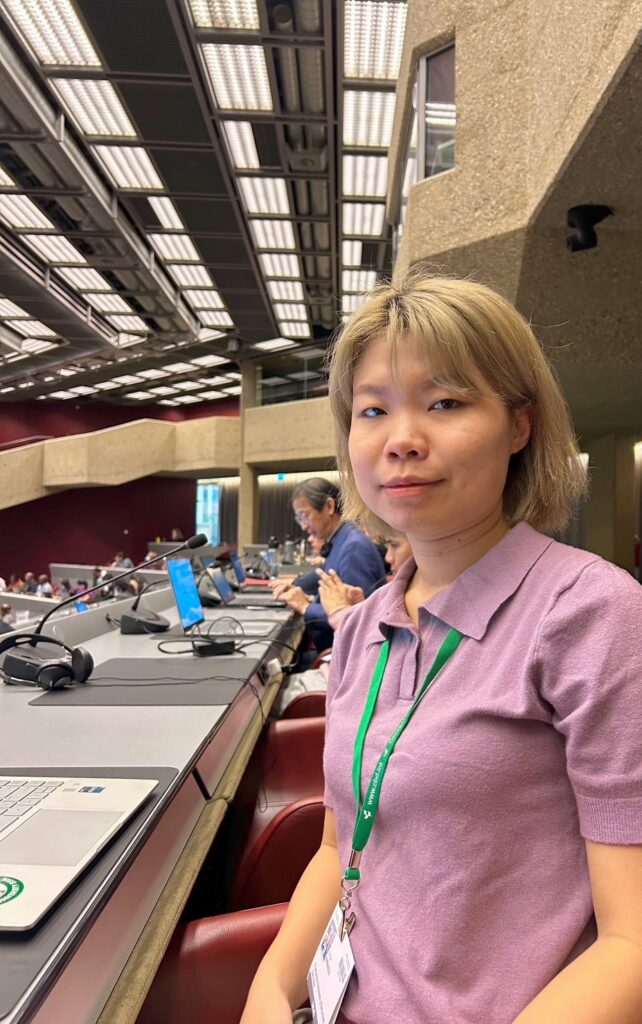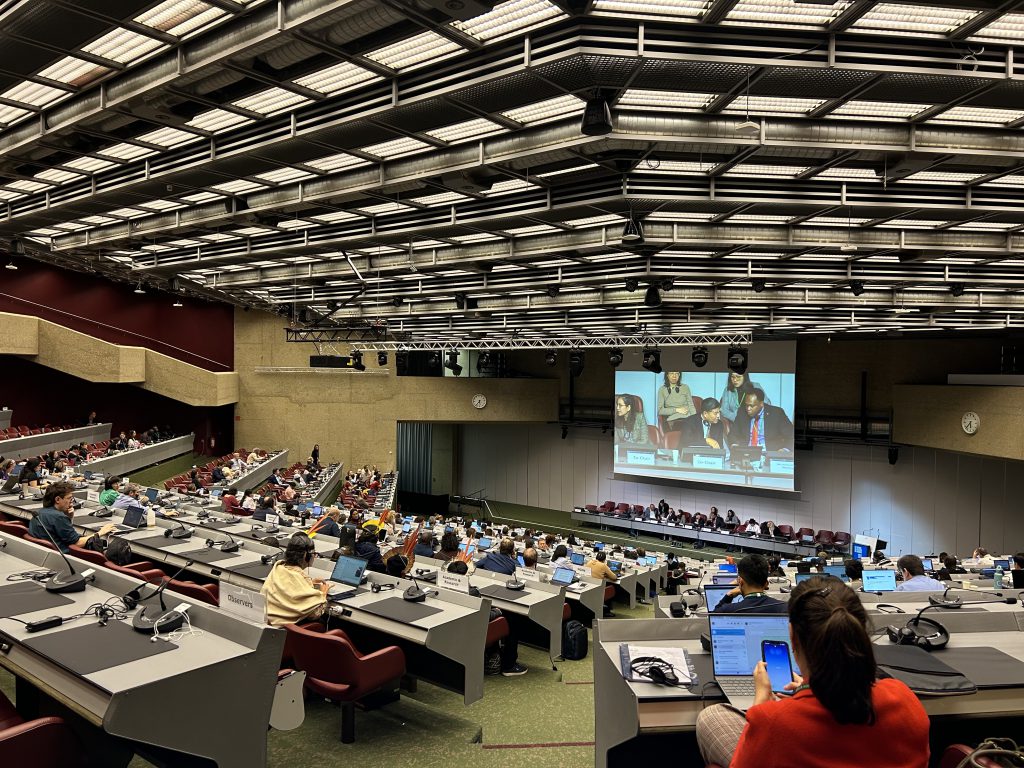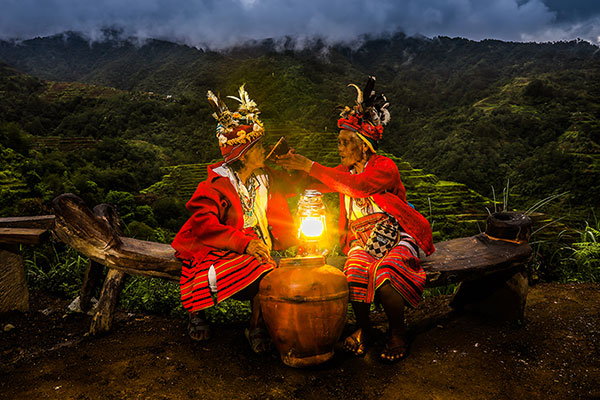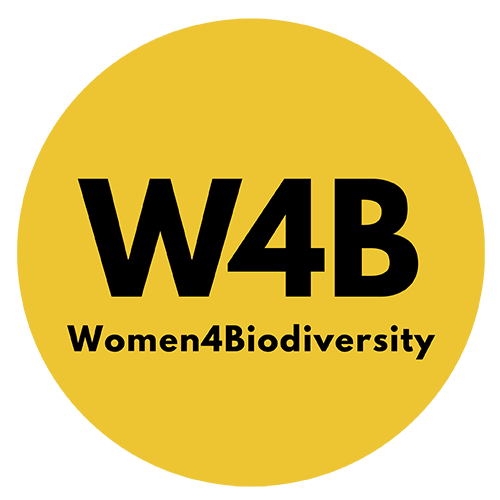A personal reflection on the 12th meeting of the Ad Hoc Open-ended Intersessional Working Group on Article 8(j), Geneva, Switzerland 2023
TEXT AND PHOTOS BY SUNITA KWANTA, ADVOCATE FOR WOMEN RESEARCH GROUP, KAREN ENVIRONMENTAL AND SOCIAL NETWORK ACTION (KESAN)
The Convention on Biological Diversity (CBD) recognizes Indigenous Peoples’ and local communities’ dependency on biological diversity and their unique role in conserving life on Earth. From the 12th to the 16th of November 2023, I participated in the the 12th meeting of the Ad Hoc Open-ended Intersessional Working Group on Article 8(j) (WG8j) in Geneva, Switzerland. The purpose of the meeting was to respect, preserve, and maintain the knowledge, innovations, and practices of Indigenous Peoples and local communities relevant to the conservation of biological diversity.
This was the first time I attended an international meeting and during this WG8j meeting the dialogue involved around the issues of Indigenous Peoples and local communities. Knowledge, culture, and traditions were shared with each other and each delegate presented their struggle to preserve Indigenous Peoples’ and local communities’ traditional knowledge.
Indigenous People’s culture, languages, traditions, and ways of life should be respected and preserved by all nations. Traditions for example serve as a means of continuity across generations. It is a way to pass down the values, history, and culture to the next generation. I belong to the S’Gaw Karen community where parents give us names in the Karen language, which is another way of identifying who we are. Our elders have taught us the names of animals, plants, and herbal medicine, amongst others. Indigenous language must be shared with the next generation, as our older generation passes away, we are losing the linguistic and spiritual links to our cultures and natural environment. To keep Indigenous languages alive, a deliberate effort must be made to pass them from one generation to the next, with a particular focus on engaging the youth. This is further reiterated by the Indigenous Women’s Biodiversity Network (IWBN) emphasizing the intrinsic connection of Indigenous Peoples’ languages with nature, metaphors, and medicinal knowledge.

The working group on article WG8j provided a space for Indigenous, local communities, governments, businesses, and parties to collaborate, share, and build the capacity of traditional knowledge. The conference resulted in agreements encompassing all aspects of biological diversity. The collective efforts of the working group were directed towards safeguarding knowledge, preserving culture, and maintaining a way of life. Their focus was on expressing the specific needs of their respective tribes and asserting basic rights, aiming for Indigenous People and local communities to live in harmony with biodiversity.
With climate change threatening Indigenous People’s way of life, especially the Karen people, it becomes crucial to preserve traditional knowledge. Despite our dedication to preserving the rich natural environment and forests, the ongoing conflict presents us with challenges. Drawing on the wisdom of our elders, we continually learn how to survive and adapt. For instance, the Karen Indigenous People do rotational farming, a practice that not only contributes to the balance of the ecosystem but also reduces greenhouse gas emissions.
I learnt that there is widespread support for incorporating a gendered approach and addressing issues relevant to young people. An example from our Karen Indigenous community is that members follow in the footsteps of their elders to protect the forest, conduct research, and learn how to navigate the negative impact of climate change. Although climate change impacts everyone, it particularly impacts women and girls who are the key stakeholders in climate change negotiations. To realize their potential to become leaders in their communities, countries, and the world, they should be able to grow up in a place where their well-being, education, safety, and empowerment can be ensured.
In conclusion, what inspired me the most was seeing Indigenous Peoples from various countries share the needs of their community during the conference. They discussed mechanisms and strategies to protect their traditions, emphasizing the active involvement of Indigenous and local communities in decision-making processes, particularly women, girls, and youth. Also, the empowering stories of women from different countries removed any doubts I had and inspired me to be who I really want to be and support my community.

Watch all the plenary sessions of WG8j here.
ABOUT THE AUTHOR

Sunita Kwangta is 23 years old young woman from the S’Gaw Karen community that live in the border of Myanmar and Thailand. She graduated from International College, Chiang Mai Rajabhat University with a Bachelor’s Degree. Currently, she is working as an International Advocate for Women’s Research for Karen Environmental and Social Action Network (KESAN) in Thailand.



so proud and happy to see the young generation, brave, smart. Peace if there…
Very true 🙂
So great to see young Karen women like Sunita who are working to help better their home communities. Let’s keep this positive momentum moving forward!
Absolutely!